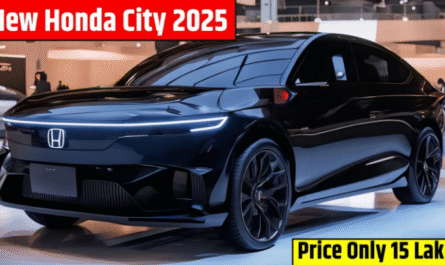Pakistan’s newly unveiled Budget 2025–26 has set off waves of concern in the auto industry. A revised taxation policy will hit hybrid car buyers hard, pushing some models’ costs up by over ₨ 1.4 million. Here’s what you need to know.
🔍 What’s Changing?
The government has eliminated the preferential GST rate (8.5%) for hybrid vehicles and imposed a flat 18% GST, the same as for petrol and diesel cars . This effectively cancels the subsidies designed to promote hybrid adoption. While customs duties on imported hybrid and luxury EVs were simultaneously removed—aimed to support local assemblers—the net impact on end-user pricing is substantial .
📈 Price Impact: How Much More?
According to PakWheels and industry forecasts, here’s an overview of expected price adjustments:
| Model (HEV) | Current Price | New Price (18% GST) | Increase |
|---|---|---|---|
| Haval H6 HEV 1.5L | ₨ 11,749,000 | ₨ 12,777,714 | ~₨ 1,028,714 |
| Toyota Corolla Cross 1.8 HEV | ₨ 8,999,000 | ₨ 9,786,931 | ~₨ 787,931 |
| Hyundai Tucson Hybrid Smart 1.6L | ₨ 10,999,000 | ₨ 11,962,046 | ~₨ 963,046 |
| Kia Sorento 1.6T HEV AWD | ₨ 15,999,000 | ₨ 17,399,834 | ~₨ 1,400,834 |
Several models, especially higher-end variants like the Kia Sorento HEV, could see increases reaching ₨ 1.4 million
🏭 Industry Backlash
Local assemblers and the Ministry of Industries voiced strong opposition:
- The Ministry of Industries argued the tax hike contradicts Pakistan’s National Climate Policy and the Auto Industry Development & Export Policy (AIDEP), which promised supportive tax structures to encourage hybrid adoption .
- Auto sector stakeholders, including the Pakistan Automotive Manufacturers Association (PAMA), warned the move could reverse the emerging EV/hybrid market and deter further investment .
🌐 Real Voices: Reddit Reacts
Pakistani car enthusiasts on Reddit are divided. One concerned owner commented:
“Hybrid cars make most sense if you drive extensively within the city … Otherwise the price difference between a hybrid and non hybrid would be difficult to justify.
Another chimed in, highlighting battery longevity:
“Hybrid batteries do not need to be changed every 100k km…and fuel saving is more than 2‑3 km/L.
These insights reflect deep concerns about long-term cost savings versus upfront price surges.
⚠️ Why This Matters
- Affordability takes a blow: Hybrid cars, once competitively priced with petrol vehicles, now come with a sizeable premium—potentially deterring middle-class buyers.
- Green transition stalled: Taxing hybrids like conventional cars weakens Pakistan’s push toward sustainable mobility.
- Uneven industrial support: Assemblers benefit from customs relief, but consumers bear the brunt of taxation—a policy misalignment that may dampen demand.
✅ What Should Buyers & Policy-Makers Do?
Buyers:
- Reevaluate total cost of ownership—higher GST upfront, lower fuel costs over time.
- Consider urgency; pre-budget purchases could save you a hefty sum.
Policy-Makers:
- Consider restoring reduced GST rates for locally assembled hybrids to align with AIDEP and climate goals.
- Engage with industry and consumer advocacy groups to steer tax policy that balances revenue and sustainability.
🧭 The Road Ahead
With hybrid car prices surging by ₨ 800k to ₨ 1.4 million, Pakistan faces a critical crossroads. Will the budget bombshell reverse the shift toward cleaner mobility, or prompt stronger policy support for green vehicles?



